Changing self and system in COVID-19
This article was written by Anna Powell and Alessandra Prunotto
How do you change a system that is in a state of flux – and at times, in chaos?
The systems change initiatives we support at Clear Horizon are now tackling this question. Before COVID-19, the typical patterns of systems were very difficult to shift – in many respects, the systems we live and work in here in Australia have been built over more than 200 years. Now, they move like quicksilver.
The pandemic has required systems change-makers to reorient themselves in systems that are in flux. Change-makers are working out new opportunities and leverage points to affect positive change now. (Let’s not waste a good crisis.)
Of the many potential systems levers in this context, one meaningful area to focus on can be how you yourself show up in the system. While systems change leaders do this all the time, during a time of heightened instability working on yourself helps keeps you anchored to purpose and hold steady through the state of flux. Developmental evaluators can play a crucial role in supporting this reflective and action-orientated process.
You are the system
According to The Water of Systems Change by Kania, Kramer and Senge (2018), systems change requires change-makers to identify the intangible aspects of a system, including relationships, power distribution, institutional norms and constraints, attitudes, and assumptions.
One of these intangibles is mental models, a powerful lever for shifting the conditions holding a system in place. Mental models are ‘Habits of thought—deeply held beliefs and assumptions and taken-for-granted ways of operating that influence how we think, what we do, and how we talk (Kania, Kramer & Senge 2018).
Deeply implicit, mental models are tricky to identify, especially in yourself and those like you. They are also confronting to challenge, because you have to question the power structures that have shaped these mental models – often structures you have benefited from in some way.
But it has to happen. Systems change is ultimately change in people. Mental models are held by individuals, and individuals are fractals of a system. Learning and change on a personal and team level is a part of systems change.
Triple-loop learning for self-reflection
Reflection can be uncomfortable. In a group setting, it needs high levels of vulnerability and trust. This process can be softened by a neutral developmental evaluator playing the role of ‘curious’ friend – someone close enough to create a sense of warmth, but far back enough to identify cognitive dissonance.
These difficult reflections need to be systematic and driven by pertinent questions. Mark Cabaj’s paper Evaluating Systems Change Results introduces a concept called ‘triple-loop learning’ that we’ve found useful to be more deliberate when reflecting on the self in the system.
In our previous blog post, we explained how single and double loops of learning are useful for strategic learning in emergent contexts. Cabaj explains that while these loops deal respectively with learning about what we are doing (implementation) and what we are thinking (strategy/context), triple-loop learning deals with how we are being. It directs us to ask questions about our emotional triggers, our habitual responses, our social norms/dynamics and our individual and shared values and narratives.
Brave government: triple-loop learning in action
The value of this triple-loop learning was highlighted through our work in supporting a government client with their efforts to change the way they work with communities. They were aiming to shift an entrenched power dynamic in how government works with communities and transform ways of working within their own offices.
As our staff built a trusting relationship with this government team, we together identified their positioning of power and authority as a key systems lever. Before COVID-19, we began to help facilitate these reflections on how they were stepping into their power, moving more into the tricky space of personal and team adaptive work. Seeing senior officials confronting their own discomfort was a testament to their commitment to change.
The team identified that their adaptive work and reflection meant that they would be able to take forward new ways of being and working wherever they went in government. By starting to build a tolerance of the discomfort needed to learn and change, they were modelling the learning culture they wanted to see across government. They were moving towards a new mode of ‘being’ in a system that they could take with them no matter which department they found themselves in. A systematic triple-loop reflection process was key to identifying these valuable, yet intangible, moves toward meaningful change.




